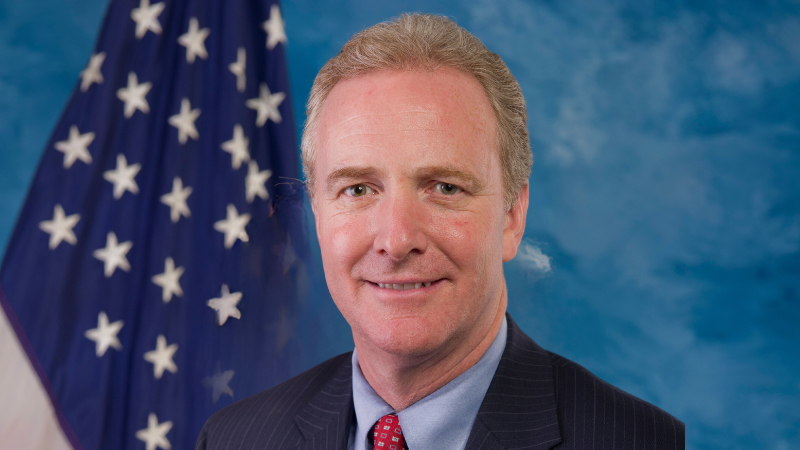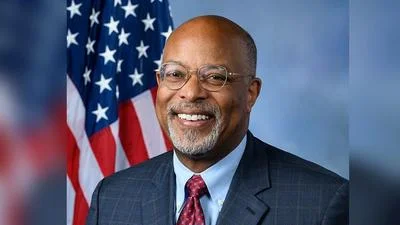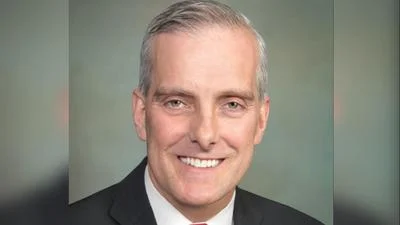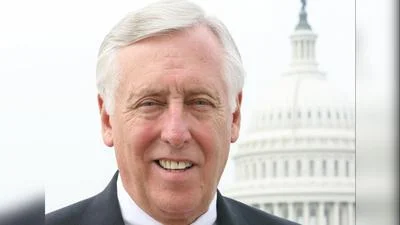Chris Van Hollen | Official U.S. Senate headshot
Chris Van Hollen | Official U.S. Senate headshot
U.S. Senators Chris Van Hollen (D-Md.), Ben Cardin (D-Md.), and Bob Casey (D-Pa.) and Representatives Bobby Scott (D-Va.-03), John Sarbanes (D-Md.-03) and Abigail Spanberger (D-Va.-07) led fellow Chesapeake Bay-area lawmakers from both the Senate and House of Representatives in a recent letter urging U.S. Department of Agriculture Secretary Tom Vilsack to replenish the resilient farms initiative established administratively thanks to their efforts last year with available Inflation Reduction Act and other funds. The Chesapeake Bay States’ Partnership Initiative (C-SPI) provides additional financial and technical assistance to farmers to implement conservation practices in the Bay watershed region.
“As you distribute Natural Resources Conservation Service (NRCS) funding provided in the Inflation Reduction Act (IRA) to states for climate-smart agriculture, we encourage you to leverage the C-SPI framework to deliver additional financial and technical assistance in the region…Investing IRA funding in the Chesapeake Bay watershed will achieve climate and environmental co-benefits and demonstrate the success of voluntary conservation programs when funded at-scale.”
The initial $22 million C-SPI investment USDA announced in May 2022 helped states respond to the high demand from producers in the Chesapeake Bay watershed region for additional support to implement practices that reduce nitrogen and sediment loss and improve water quality, in line with the goals of the Chesapeake Bay Program partnership. Since the initiative was established, Congress passed the Inflation Reduction Act, providing over $20 billion in supplemental funding for practices linked to reducing climate change, many of which offer water quality benefits. The letter urges USDA to utilize the C-SPI framework when delivering IRA funding to help farmers boost climate-smart conservation in the Bay watershed, in addition to reallocating surplus funds appropriated in Fiscal Year 2023 from other regions.
The letter also was signed by Senators Tom Carper (D-Del.), Mark Warner (D-Va.), Chris Coons (D-Del.), Tim Kaine (D-Va.) and John Fetterman (D-Pa.). It also was signed by Representatives Steny Hoyer (D-Md.-5), Eleanor Holmes Norton (D-D.C.), Dutch Ruppersberger (D-Md.-2), Kweisi Mfume (D-Md.-7), Lisa Blunt Rochester (D-Del.), Jamie Raskin (D-Md.-8), Susan Wild (D-Pa.-7), David Trone (D-Md.-6), Jennifer Wexton (D-Va.-10) and Jennifer McClellan (D-Va.-4) and Glenn Ivey (D-Md.-4).
The full letter follows and can be found at this link.
Dear Secretary Vilsack:
Following the recent one-year anniversary of the U.S. Department of Agriculture’s (USDA) announcement of the Chesapeake Bay States’ Partnerships Initiative (C-SPI), we thank you for the Department’s initial investment of $22.5 million in the initiative and urge you to ramp up support for our region’s producers as they strive to meet clean water goals and implement climate-resilient conservation practices.
As you distribute Natural Resources Conservation Service (NRCS) funding provided in the Inflation Reduction Act (IRA) to states for climate-smart agriculture, we encourage you to leverage the C-SPI framework to deliver additional financial and technical assistance in the region. Over the next ten years, $737 million is needed to fully implement the state-led Watershed Implementation Plans (WIPs) to achieve their Chesapeake Clean Water Blueprint commitments.
Under those plans, the agriculture sector is expected to achieve 85 percent of the necessary nutrient and sediment reductions, and simultaneously mitigate greenhouse gases and adapt to climate impacts.
Two-thirds of the practices identified in the WIPs are designated as Climate-Smart Mitigation Activities. Investing IRA funding in the Chesapeake Bay watershed will achieve climate and environmental co-benefits and demonstrate the success of voluntary conservation programs when funded at-scale.
Funding can be further targeted in areas with significant partnerships in place to leverage investment and utilize cooperative agreements for technical assistance. IRA investments made available early in the fiscal year allow more time for states and partners to prepare the staffing, outreach, and other resources they provide to the Department and participating farmers throughout the year.
In addition, we urge you to direct any previously allocated non-expended regular Fiscal Year 2023 NRCS funding to the Initiative. Mid- and end-of-year reallocations remain critical sources of additional funding for shovel-ready projects.
In closing, we commend your commitment to the USDA-EPA Federal Crediting Task Force. We look forward to its recommendations for ensuring farmers receive full credit for the water quality benefits of all their conservation efforts.
Thank you for your commitment to the Chesapeake Bay region and your timely attention to this matter.
Sincerely,
Original source can be found here






 Alerts Sign-up
Alerts Sign-up